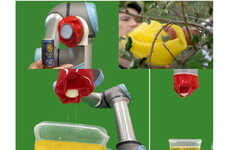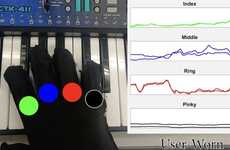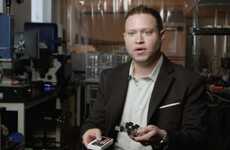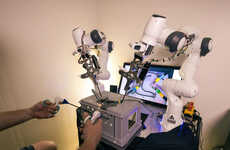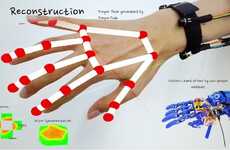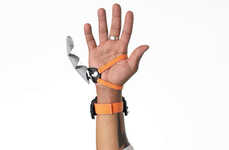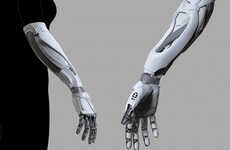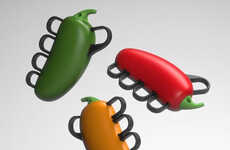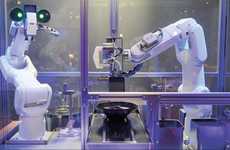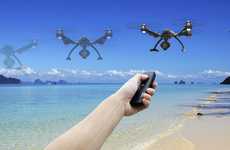
These Robot Fingers Curve and Straighten When Heated and Cooled
Rahul Kalvapalle — October 13, 2015 — Tech
A group of scientists and researchers at Florida Atlantic University have developed high-tech robotic fingers that have a distinctly realistic and natural -- as in human-like -- look and feel. These robotic accessories are notable in that they are outfitted with the ability to curve and straighten when heated and cooled.
The researchers created the robotic fingers by starting with a 3D moel of a human finger, before creating a model of the digit and 3D printing inner and outer molds.
These fingers aren't merely cool to look at, but could have some great implications. As assistant professor Erik Engeberg points out, the light weight, strength and dexterity of these robotic fingers allows "tremendous advantages over traditional mechanisms, and could ultimately be adapted for use as a prosthetic device, such as on a prosthetic hand."
The researchers created the robotic fingers by starting with a 3D moel of a human finger, before creating a model of the digit and 3D printing inner and outer molds.
These fingers aren't merely cool to look at, but could have some great implications. As assistant professor Erik Engeberg points out, the light weight, strength and dexterity of these robotic fingers allows "tremendous advantages over traditional mechanisms, and could ultimately be adapted for use as a prosthetic device, such as on a prosthetic hand."
Trend Themes
1. Realistic Robotic Prosthetics - The development of realistic robotic fingers could lead to the creation of advanced prosthetics that mimic human functions and offer greater range of motion.
2. Thermoelectric-enabled Robotics - The ability of these robot fingers to curve and straighten when heated and cooled presents an opportunity for further development of thermoelectric-enabled robotics.
3. 3D Printed Robotics - The use of 3D printing to create molds for these robotic fingers could pave the way for the development of more complex and customizable robotics in the future.
Industry Implications
1. Prosthetics - The realistic and functional design of these robotic fingers make them a potential innovation in the prosthetics industry.
2. Robotics - The development of these realistic and versatile robotic fingers could have disruptive implications in the robotics industry, especially in the field of gripper systems.
3. Thermoelectric Technology - The thermoelectric capabilities of these robot fingers highlight the potential for further innovation in thermoelectric technology in industries such as energy and healthcare.
2.1
Score
Popularity
Activity
Freshness


